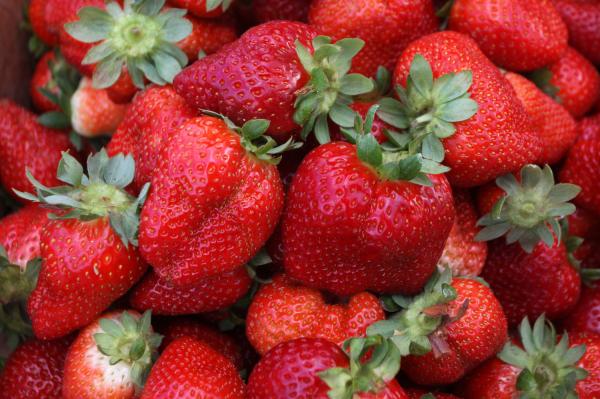Silk coating can keep fruits fresh for a week
Sat 07 May 2016, 11:51:12

Fruits can stay fresh for more than a week without refrigeration if they are coated in an odourless, biocompatible silk solution so thin as to be virtually invisible, researchers have found.
The approach is a promising alternative for preservation of delicate foods using a naturally derived material and a water-based manufacturing process, researchers said.
Silk's unique crystalline structure makes it one of nature's toughest materials. Fibroin, an insoluble protein found in silk, has a remarkable ability to stabilise and protect other materials while being fully biocompatible and biodegradable, they said.
For the study, researchers from Tufts University in the US dipped freshly picked strawberries in a solution of 1 per cent silk fibroin protein; the coating process was repeated up to four times.
The silk fibroin-coated fruits were then treated for varying amounts of time with water vapour under vacuum to create varying percentages of crystalline beta-sheets in the coating.
The longer the exposure, the higher the percentage of beta-sheets and the more robust the fibroin coating. The coating was 27 to 35 microns thick.
The strawberries were then stored at room temperature. Uncoated berries were compared over time with berries dipped in varying numbers of coats of silk that had been annealed for different periods of time,
researchers said. At seven days, the berries coated with the higher beta-sheet silk were still juicy and firm while the uncoated berries were dehydrated and discoloured, they said.
researchers said. At seven days, the berries coated with the higher beta-sheet silk were still juicy and firm while the uncoated berries were dehydrated and discoloured, they said.
Tests showed that the silk coating prolonged the freshness of the fruits by slowing fruit respiration, extending fruit"The beta-sheet content of the edible silk fibroin coatings made the strawberries less permeable to carbon dioxide and oxygen. We saw a statistically significant delay in the decay of the fruit," said Fiorenzo G Omenetto from Tufts University.
Similar experiments were performed on bananas, which, unlike strawberries, are able to ripen after they are harvested. The silk coating decreased the bananas' ripening rate compared with uncoated controls and added firmness to the fruit by preventing softening of the peel.
The thin, odourless silk coating did not affect fruit texture. Taste was not studied.
"Various therapeutic agents could be easily added to the water-based silk solution used for the coatings, so we could potentially both preserve and add therapeutic function to consumable goods without the need for complex chemistries," said Benedetto Marelli, formerly at the Omenetto laboratory and now at Massachusetts Institute of Technology.
The findings were published in the journal Scientific Reports. firmness and preventing decay.
No Comments For This Post, Be first to write a Comment.
Most viewed from Specials
Most viewed from World
AIMIM News
Latest Urdu News
Most Viewed
May 26, 2020
Do you think Canada-India relations will improve under New PM Mark Carney?
Latest Videos View All
Like Us
Home
About Us
Advertise With Us
All Polls
Epaper Archives
Privacy Policy
Contact Us
Download Etemaad App
© 2025 Etemaad Daily News, All Rights Reserved.






















.jpg)
.jpg)
.jpg)

















